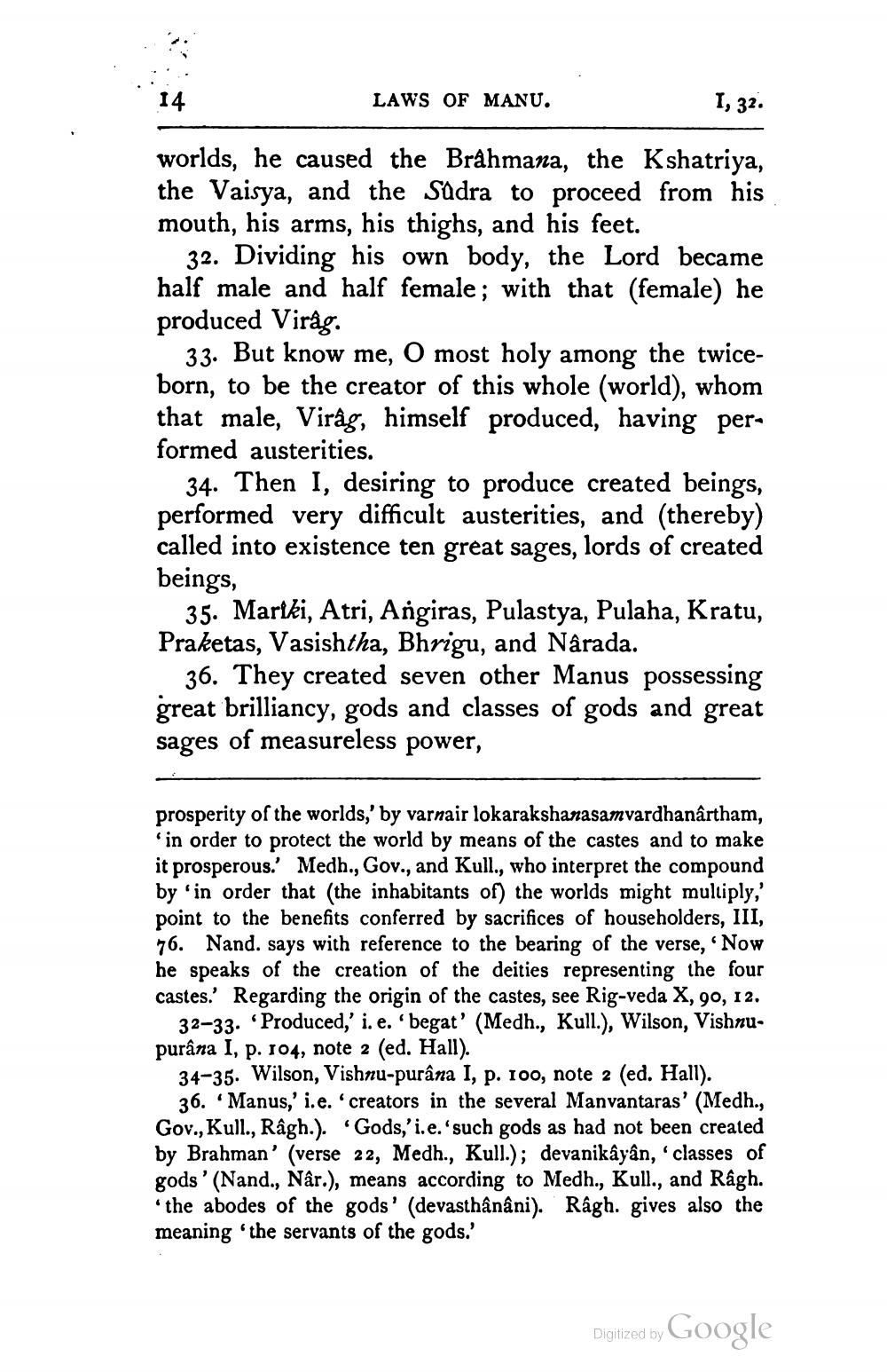________________
14
LAWS OF MANU.
I, 32.
worlds, he caused the Brahmana, the Kshatriya, the Vaisya, and the Sudra to proceed from his mouth, his arms, his thighs, and his feet.
32. Dividing his own body, the Lord became half male and half female; with that (female) he produced Virág.
33. But know me, O most holy among the twiceborn, to be the creator of this whole (world), whom that male, Virág, himself produced, having performed austerities.
34. Then I, desiring to produce created beings, performed very difficult austerities, and (thereby) called into existence ten great sages, lords of created beings,
35. Martki, Atri, Angiras, Pulastya, Pulaha, Kratu, Praketas, Vasishtha, Bhrigu, and Nârada.
36. They created seven other Manus possessing great brilliancy, gods and classes of gods and great sages of measureless power,
prosperity of the worlds,' by varnair lokarakshanasamvardhanârtham, ' in order to protect the world by means of the castes and to make it prosperous.' Medh., Gov., and Kull., who interpret the compound by 'in order that (the inhabitants of) the worlds might multiply,' point to the benefits conferred by sacrifices of householders, III, 76. Nand. says with reference to the bearing of the verse, 'Now he speaks of the creation of the deities representing the four castes.' Regarding the origin of the castes, see Rig-veda X, 90, 12.
32-33. 'Produced,' i. e. 'begat' (Medh., Kull.), Wilson, Vishnupurâna I, p. 104, note 2 (ed. Hall).
34-35. Wilson, Vishnu-purâna I, p. 100, note 2 (ed. Hall).
36. 'Manus,' i.e. 'creators in the several Manvantaras' (Medh., Gov., Kull., Râgh.). 'Gods,' i. e. 'such gods as had not been created by Brahman' (verse 22, Medh., Kull.); devanikâyân, 'classes of gods' (Nand., Nâr.), means according to Medh., Kull., and Râgh. 'the abodes of the gods' (devasthânâni). Râgh. gives also the meaning 'the servants of the gods.'
Digitized by Google




